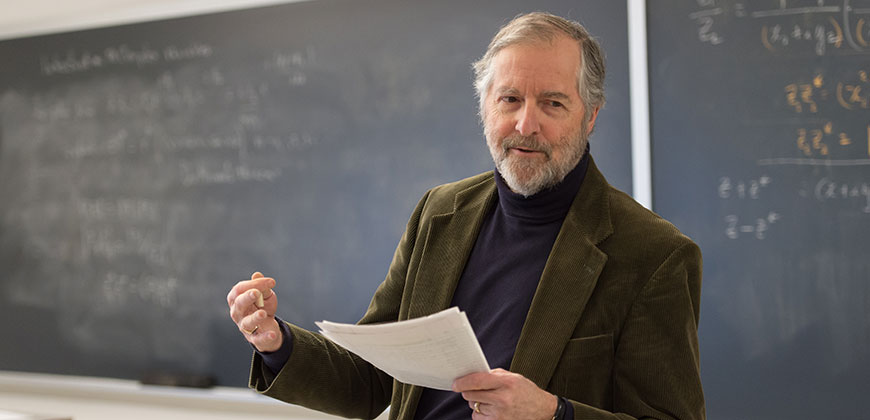
Bruce Ellingwood, professor of civil and environmental engineering, has received the OPAL award from the American Society of Civil Engineers.
As co-director of the NIST Center for Risk-Based Community Resilience Planning and a professor in the Department of Civil and Environmental Engineering, Bruce Ellingwood is bringing new meaning to the term “retirement.”
“Retirement hasn’t worked out quite the way I expected it to – I now find myself busier than I’ve ever been,” he said. Ellingwood’s past three years at Colorado State University are just a glimpse into the time and effort he has dedicated to the field of civil engineering over his four-decade career.
Ellingwood is one of the 2017 recipients of the American Society of Civil Engineers (ASCE) Outstanding Projects and Leaders (OPAL) Awards. According to ASCE, in March, Ellingwood will be honored at the Opal Gala in Arlington, Virginia for his “demonstrated excellence in furthering civil engineering education.”
Structural engineering education and outreach
Ellingwood has mentored more than 36 Ph.D. students throughout his career and served as department chair at Johns Hopkins University and Georgia Tech. Beyond that, he’s been deeply involved in developing a design method called Load and Resistance Factor Design (LFRD). Considered one of the founding fathers of probability-based limit states design theory, Ellingwood has spent significant time advocating for LFRD around the world and working with professional engineers to teach them the new methods.
Another way he practices teaching and professional outreach is through his guest faculty appointment at Tsinghua University in Beijing, China. Since 2010, Ellingwood has visited each summer. “I teach structural engineering courses and work with young faculty and doctoral students to familiarize them with the university education and research enterprise in the United States,” he said. Ellingwood values the importance of learning to work across cultural boundaries, and hopes his visits to Tsinghua University contribute to developing better international ties between academia in China and the U.S.
Ellingwood’s efforts have not gone unnoticed; earlier this year he received the 2016 Alfred M. Freudenthal Medal, also from ASCE, “for the unique role he has played in transforming structural reliability from an academic research specialty into the mainstream of structural engineering practice.” Both the OPAL Award and Freudenthal Medal represent Ellingwood’s many contributions to the field of civil engineering, and he is grateful for the recognition: “It’s a recognition from my professional peers that my teaching work has had a long-lasting impact on the profession, and a positive impact on the lives of many people. I was delighted to be selected.”